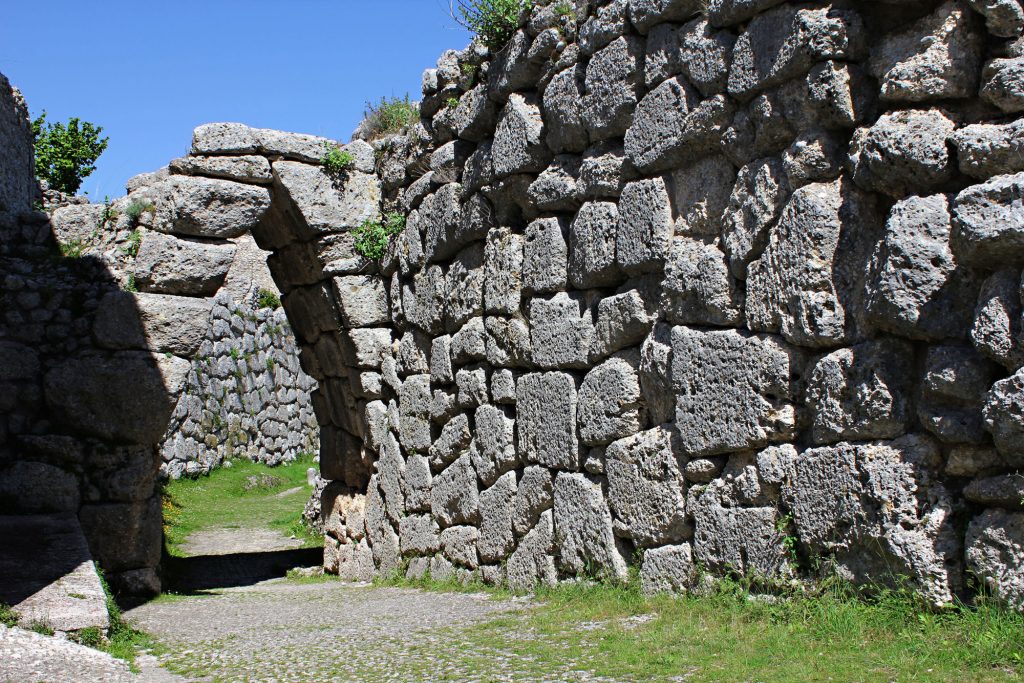ARPINO HISTORY
The origins of Arpino go back at the beginning of time. Legend has it that the town together with other Ciociarian towns (Alatri, Ferentino, Atina, Anagni) was founded by Saturn, the patron god of harvesting. Its first inhabitants have been identified with the mythical Pelasgians, the pre-Hellenic people who are believed to be the builders of the huge fortifications called “cyclopean or pelasgian walls”, which are still to be seen at Civitavecchia and in other parts of the built area. In truth, the first to settle in this area were the Volscians, whose presence is proved by documents since the 7th century BC. Conquered by the Samnites in the fourth century BC, it came under Rome’s rule with the status of civitas sine suffragioThe town became the centre from which the Roman culture spread across the Liri Valley. In 188 BC it was granted the title of civitas cum suffragio which entitled the town the full right to Roman citizenship. During the rule of Caius Marius the Ager Arpinas, the land of Arpino’s Municipium, extended from the village of Ceretae Marianae, the modern Casamari, to Arce. During the Imperial age the town witnessed a period of decline and in the Dark Ages was conquered many times. As the Angevin dinasty conquered the Kingdom of Naples in 1265, Arpino was on the rise again. To this period belong many fortifications, among which there are the towers and castles of Civitavecchia and Civita Falconara.
In 1409 the king of Naples Ladislaus of Anjou-Durazzo granted it the title of Crown property, so freeing the town from the feudal jurisdiction. The king also established here a garrison whose headquarters were the castle still called “Ladislaus castle” which overlooks Civita Falconara rock. The king himself used to spend long period in the castle, which was a strategic point for the defence of the northern border of the kingdom.)
Arpino is birthplace of Cicerone, Caio Mario, Marco Vipsanio Agrippa, Giuseppe Cesari (Il Cavalier D’Arpino), Pasquale Rotondi.



